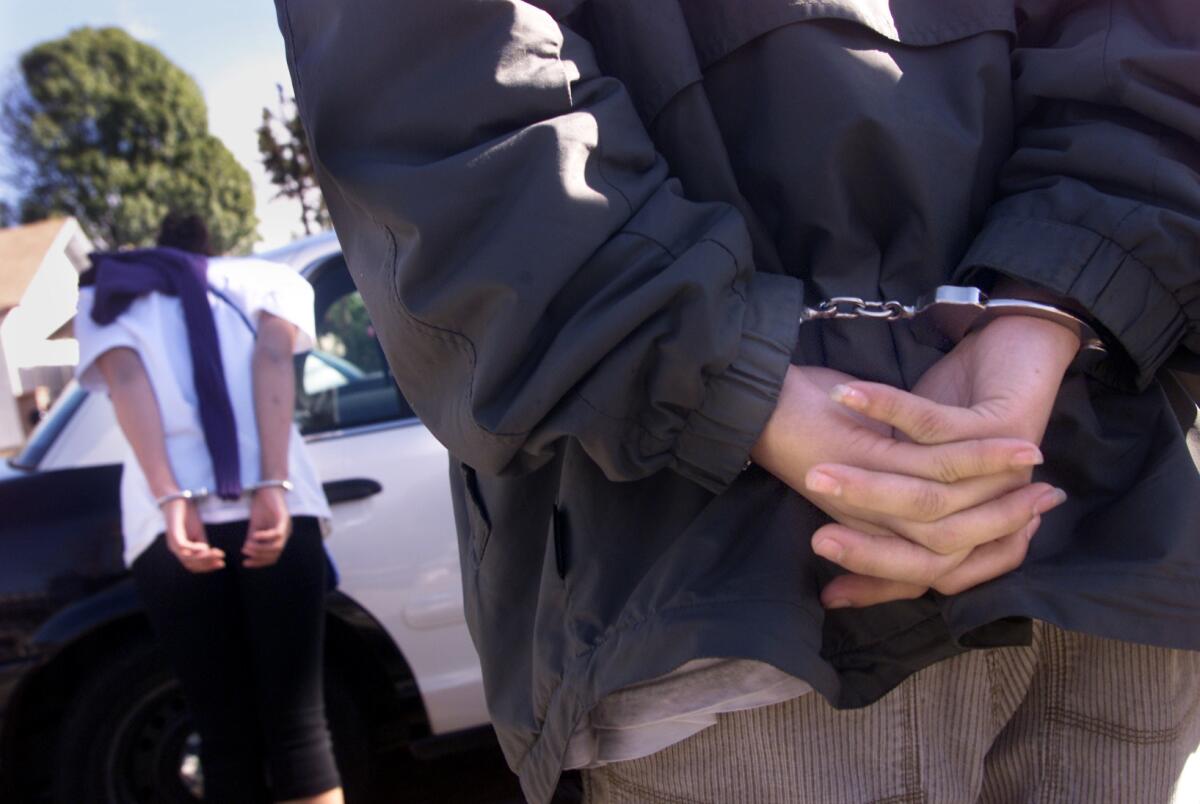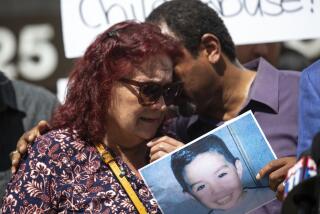Intervention lowers drug, crime and behavior problems, but not by much

Violence prone children who went through a decadelong intervention program grew up to have fewer psychiatric, drug-related and legal problems, according to a new study.
In 1990, George H.W. Bush was in office, the crack epidemic was in full swing, and Congress wanted the National Institute of Mental Health to do something about youth violence.
Child psychologist Kenneth Dodge at Duke University eventually persuaded the institute to fund a 10-year study that would compare how children would fare under prolonged therapy and tutoring aimed at improving social and cognitive skills, and whether their adult fates would differ from similar children who did not participate.
No study of its breadth and kind had been done before.
Dodge’s team, which included researchers from Penn State University, the University of Alabama, Simon Fraser University and Tufts University, screened nearly 10,000 children to identify 891 kindergartners who displayed aggressive behavioral problems in school and at home. They came from elementary schools in poor and crime-ridden communities near the universities.
Over the years since the study’s 1991 launch, researchers have published several progress reports. But this time, they wanted to see how subjects had fared eight years after the program ended, based on interviews with the participants and those who knew them well, and a review of court records and other public documents.
Results, published online Tuesday in the American Journal of Psychiatry, show modest improvement in psychological markers that predict long-term antisocial behavior and criminality. Program graduates also had fewer legal problems, substance abuse issues and risky sexual behaviors. The data suggest that intervention can work, and effects can persist over many years.
Overall, the likelihood of psychological, criminal, sexual and behavioral problems dropped by about 9 percentage points from those of nonparticipants, the study found.
“It’s not miracles; it’s not huge impacts,” said Dodge, who directs Duke’s Center for Child and Family Policy. “We weren’t successful with every child, but on average we have been able to prevent some of those [negative] outcomes.”
The cost, $58,000 per child over 10 years, could prove problematic, particularly because participants were no more likely to have graduated high school or gained full employment 18 years later. And incarceration rates differed by only 1.3 percentage points between participants and the control group.
“It’s a hefty sum, making it daunting to finance a program like this nationwide, or even school district-wide,” Dodge said. “On the other hand, we know that the kids otherwise are going to grow up to cost society an awful lot.”
A career criminal with a variety of other behavioral problems, the study noted, can cost society upward of $2.6 million over a lifetime.
The study did not compare the proprietary curriculum, developed by Dodge and other authors, with other interventions, and could not discount effects from other factors, such as enrollment in special education and receiving medical treatment for such diagnoses as attention deficit disorder.
But by late high school years, participants were using fewer social service programs than their peers, an earlier report on the study found.
The latest look at the data showed grown-up participants who had families of their own also were not spanking their children as much. Research has shown that parental use of corporal punishment correlates with future aggressive or antisocial behavior by those children.
“Maybe by working with children as they grow up we can interrupt violence in the next generation,” Dodge said. “Their parenting of their offspring seems to be improved.”
Parenting efficacy increased marginally, but intervention appeared to have no effect on coercive parenting or parental satisfaction, the study found.
And substance abuse data were mixed, showing a drop in alcohol abuse, but only marginally less binge drinking. Serious drug abuse was less likely among program graduates, but there appeared to be no effect on heavy use of marijuana, the study found.
Risky sexual behavior also dropped significantly, with a more modest drop in violence against partners, the study found.







